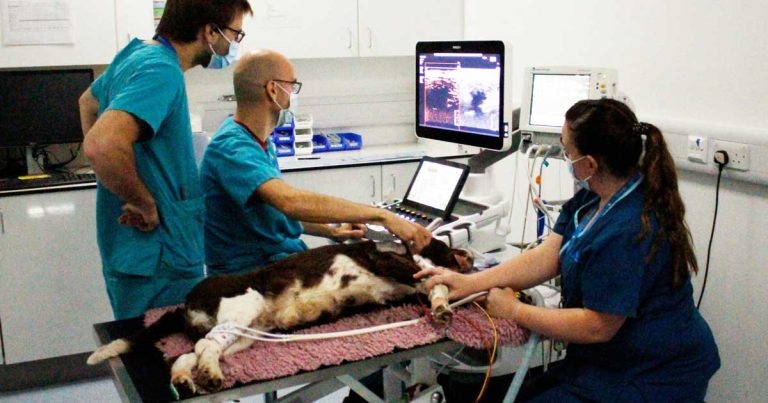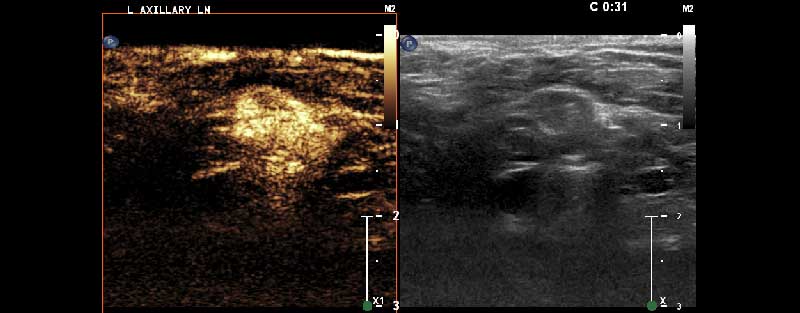3 Feb 2022
Oncology and soft tissue centre claims a case success rate of more than 90% in identifying the sentinel lymph node using contrast-enhanced ultrasound mapping techniques.

From left: specialist Quentin Fournier with radiologist Sergio Guilherme and senior nurse Jen O'Keeffe using contrast-enhanced ultrasound sentinel lymph node mapping.
Fitzpatrick Referrals Oncology and Soft Tissue in Guildford has invested in new equipment to offer contrast-enhanced ultrasound sentinel lymph node mapping to help their patients.
Only a few places in Europe are able to routinely perform this minimally invasive test as part of cancer management, with Fitzpatrick Referrals announcing the development on the eve of World Cancer Day (4 February).
The technique consists of injecting a benign contrast agent into the tissues around the tumour, which travels in the lymph system to only the draining (or sentinel) lymph node(s), allowing them to be identified by ultrasound.
This confirms which lymph nodes should be investigated more closely – non-draining lymph nodes appear unaffected on ultrasound and can be ignored.

The technique of sentinel lymph node mapping is particularly important in human breast cancer and melanoma of the skin, traditionally using a radioactive agent to map the lymph nodes.
Fitzpatrick Referrals senior clinician in medical oncology Quentin Fournier has demonstrated that this technique is also valuable for the staging of mast cell tumours in dogs.
He said: “It is so exciting to be working at the forefront of progress in this area, and to be able to offer our patients the newest techniques.”
Mast cell tumours are the most common skin tumours in dogs and usually spread to the lymph nodes first, before spreading to more distant sites such as the liver and spleen.
During the past few months, more than 30 patients at Fitzpatrick Referrals have benefited from this new technique, with the centre claiming a case success rate of more than 90% in identifying the sentinel lymph node.